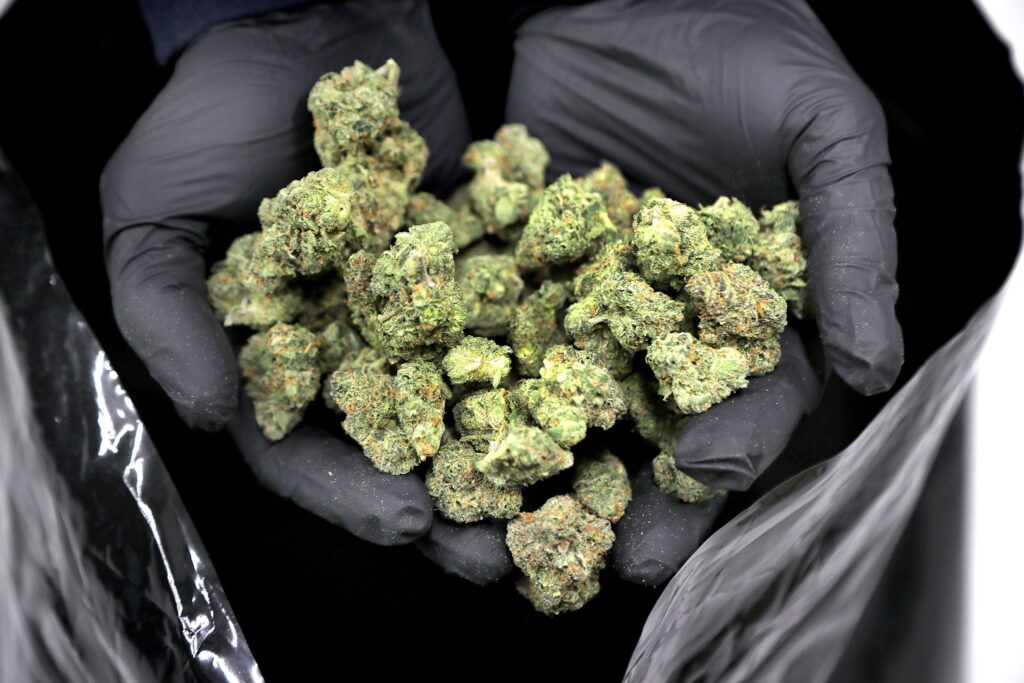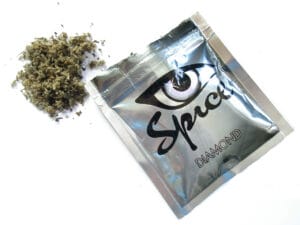Introduction
Cannabis has become a widely accepted substance both for recreational and medical purposes, with the rise in cannabis dispensaries, weed strains, and related products such as cannabis edibles, weed vape cartridges, and more. Whether you’re a first-time cannabis user or a seasoned pro, you may have asked yourself at some point, “How long does it take for weed to be cleared from the body?”
This is a particularly important question for people facing upcoming drug tests or those curious about the effects and duration of THC and CBD in the system. Weed’s main psychoactive compound, THC, stays in the body for various lengths of time, depending on several factors, including the frequency of use, metabolism, and method of consumption.
In this comprehensive guide, we’ll break down everything you need to know about how long weed stays in your system, based on frequently asked questions (FAQs). From how THC is metabolized to the different drug testing methods, this blog covers it all in great detail.
Frequently Asked Questions (FAQs)
Q1: How long does THC from weed stay in your body?
The amount of time THC, the psychoactive compound in weed, remains in your body can vary significantly depending on multiple factors. For most occasional users, THC is generally cleared from the system within 3 to 7 days. However, for regular users, it may take up to 30 days or longer for THC to be fully metabolized and eliminated from the body. Chronic users, particularly those who consume cannabis daily, might find that THC stays in their system for more than 60 days.
THC is fat-soluble, meaning it binds to the fat tissues in your body, which makes it harder to eliminate. As a result, individuals with higher body fat percentages may retain THC for longer periods.
Research has shown that the half-life of THC, the time it takes for half of the substance to be metabolized and eliminated from the body, ranges from 1.3 to 10 days. This wide range accounts for differences in metabolism, consumption methods, and body composition.
Q2: How is THC processed in the body?
When you consume cannabis, whether by smoking, vaping, or ingesting edibles, the THC enters your bloodstream and is quickly absorbed by various tissues in your body. Once in the bloodstream, THC is transported to the brain, where it interacts with cannabinoid receptors to produce the characteristic psychoactive effects associated with cannabis use. These effects can include euphoria, relaxation, heightened sensory perception, and altered time perception.
The liver is the organ primarily responsible for metabolizing THC. It breaks THC down into several metabolites, the most well-known being 11-hydroxy-THC, which is also psychoactive, and THC-COOH, which is the primary metabolite tested for in most drug screenings. THC-COOH is fat-soluble and is stored in body fat, which is why it can remain in your system for extended periods after the initial effects have worn off.
For example, if you eat cannabis edibles, THC is processed more slowly by the liver, leading to longer-lasting and more intense effects. On the other hand, smoking or vaping weed leads to faster absorption and faster clearance, as the body doesn’t need to metabolize the substance as much before it enters the bloodstream.
Q3: What factors influence how long weed stays in your system?
There is no one-size-fits-all answer for how long weed stays in the body. Several factors can influence how long THC and other cannabinoids remain detectable in your system. Some of the most important variables include:
- Frequency of Use: Occasional users will typically clear THC from their system faster than chronic users. If you only use weed once or twice a month, it may only stay in your system for a few days. However, if you’re a daily user, expect THC to remain in your body for up to a month or more.
- Body Fat Percentage: THC is fat-soluble, meaning that it binds to the fat cells in your body. People with higher body fat percentages will generally retain THC longer than those with less body fat. This is also why THC is harder to eliminate from the body through simple detox methods.
- Metabolism: Your metabolic rate plays a key role in how quickly your body processes and clears THC. Individuals with faster metabolisms may clear THC in a shorter time than those with slower metabolic rates.
- Hydration and Physical Activity: Being well-hydrated and engaging in regular exercise can potentially help your body metabolize and eliminate THC faster. Exercise, in particular, can break down fat cells where THC is stored, helping to release and remove the substance from your system.
- Consumption Method: How you consume cannabis also affects how long THC stays in your system. Smoking or vaping weed allows THC to enter your bloodstream quickly, but it also clears faster. In contrast, edibles take longer to metabolize, which can extend the time THC stays in your body.
- Strain Potency: High THC weed strains may take longer to metabolize compared to strains with lower THC content. The more THC in your system, the longer it will take for your body to fully eliminate it.
Q4: How long does weed stay in your blood?
THC is detectable in the blood for a relatively short period compared to other body fluids. For occasional cannabis users, THC can remain in the blood for up to 24 hours after use. For frequent users, it could stay detectable for up to a week or more, depending on how often and how much weed is consumed. Blood tests are often used in legal or medical contexts to detect recent cannabis use.
One of the reasons THC clears from the blood quickly is that it is rapidly distributed to the body’s tissues, including fat stores. Blood tests are generally used to measure current intoxication levels, making them less useful for determining long-term cannabis use.
Q5: How long does weed stay in your urine?
Urine tests are the most common method of drug testing for cannabis. THC metabolites, particularly THC-COOH, can be detected in urine for varying periods depending on usage patterns:
- Occasional users: THC metabolites may be detectable in urine for 3 to 7 days.
- Moderate users (3-4 times a week): THC may stay in the system for up to 10-15 days.
- Frequent users (daily use): THC may stay in the urine for up to 30 days.
- Chronic heavy users (multiple times a day): THC could be detectable for over 30 days, and in extreme cases, for up to 90 days.
Since THC is stored in fat cells and is released slowly over time, frequent users will have more THC metabolites circulating in their system, which will show up on a urine test. This is why even infrequent cannabis users who take a drug test shortly after consumption may test positive.
Urine tests detect the non-psychoactive THC-COOH, so even though the effects of weed have worn off, the metabolites can remain for an extended time.
Q6: How long does weed stay in your hair?
Hair follicle tests are known to detect weed and other substances for much longer than blood or urine tests. THC metabolites can be found in hair follicles for up to 90 days after consumption, making hair testing one of the most comprehensive methods for determining long-term cannabis use.
When THC enters the bloodstream, it is transferred to hair follicles and incorporated into the hair shaft as it grows. A hair test doesn’t typically show recent cannabis use (within the past week) but is effective for showing long-term patterns of weed consumption.
It’s worth noting that factors such as hair length and the rate of hair growth can influence the results of a hair follicle test. A person with shorter hair may have a lower likelihood of detection compared to someone with longer hair, but drug testing companies typically take hair samples close to the scalp.

Q7: How long does weed stay in your saliva?
Saliva tests are becoming more common, particularly for roadside drug testing, because they are easy to administer and offer quick results. However, THC is detectable in saliva for a much shorter period compared to blood or urine tests.
For most users, THC can be detected in saliva for up to 24 hours after consumption. In heavy users, this detection window might extend to 72 hours, but it rarely lasts beyond that. Saliva tests work by detecting active THC, not its metabolites, which means they are typically used to assess recent cannabis use.
Saliva tests can be impacted by factors like mouth hygiene, hydration, and the method of consumption. Vaping or smoking weed might show faster detection in saliva tests compared to edibles.
Q8: How do cannabis edibles affect the clearance time?
Cannabis edibles are processed differently from smoked or vaped weed. When you eat cannabis-infused products, THC is metabolized in the liver and converted into 11-hydroxy-THC, a more potent and longer-lasting compound. This results in a delayed onset of effects and a longer duration compared to smoking.
Because edibles take longer to digest and metabolize, THC may stay in your system for longer after consuming them compared to smoking weed. For occasional users, it could take 5 to 7 days for THC to clear, while for frequent users, it could take a month or more. Moreover, if you consume large amounts of edibles, it could lead to higher levels of THC in your system, further extending the clearance time.
Q9: How do detox methods affect how long THC stays in the body?
There are many methods people try to detox from THC, ranging from natural detox processes like drinking water and exercising to using detox products specifically designed to eliminate THC from the system. However, the effectiveness of these detox methods can vary based on the factors mentioned earlier, such as frequency of use, body composition, and metabolism.
- Hydration: Drinking water can help flush out THC metabolites, but it won’t drastically speed up the process. Staying hydrated might dilute the concentration of THC in the body, but it won’t eliminate it entirely.
- Exercise: Physical activity can help burn fat cells, releasing stored THC back into the bloodstream and potentially speeding up the detox process. However, exercise is not a quick fix for detoxing from weed.
- Detox Products: There are numerous detox teas, supplements, and kits marketed as solutions for clearing THC from the body. While some products claim to speed up the elimination of THC, most experts agree that natural detox methods, combined with time, are the best way to clear your system.
Q10: How long does CBD stay in your system?
CBD (cannabidiol), another compound found in cannabis, is non-psychoactive and doesn’t get you “high” like THC. However, it still remains in your body for a period after consumption. The half-life of CBD is estimated to be between 18 and 32 hours, meaning that it could take a few days for CBD to be fully cleared from your system.
Since most drug tests are designed to detect THC, not CBD, people using pure CBD products typically don’t have to worry about testing positive for cannabis use. However, full-spectrum CBD products may contain trace amounts of THC, which could potentially show up on a drug test.
Keywords: CBD, weed, THC, cannabis benefits, CBD oil, cannabis products.
Q11: Can secondhand marijuana smoke lead to a positive drug test?
The idea of secondhand marijuana smoke causing a positive drug test has been a topic of debate. However, most research shows that it is unlikely to fail a drug test from exposure to secondhand smoke alone. The THC levels in secondhand smoke are typically too low to cause a significant increase in THC metabolites in the body.
In extreme cases, such as being in a confined, poorly ventilated space with heavy cannabis users for an extended period, secondhand exposure might result in trace amounts of THC in your system. However, these levels are usually too low to trigger a positive result on most drug tests.
Q12: What happens if you fail a drug test for THC?
Failing a drug test for THC can have different consequences depending on the situation. For workplace drug tests, failing could result in disciplinary action, termination, or losing a job offer. In legal contexts, such as parole or child custody cases, failing a drug test could lead to legal ramifications or loss of privileges.
In many cases, employers or legal authorities might offer an opportunity to retest or provide an explanation for the positive result, especially in regions where cannabis is legal. However, in states or industries with strict zero-tolerance policies, there may be less flexibility.
Table of Contents
Conclusion
Knowing how long weed stays in your system can be crucial, especially if you’re subject to a drug test or simply curious about how cannabis affects your body. Whether you’re an occasional user or a frequent consumer, factors like your body composition, frequency of use, and method of consumption all play a significant role in determining how long THC stays in your system.
With the growing legalization of cannabis, understanding these details helps you make informed decisions. However, when it comes to passing a drug test, the best strategy is always to allow your body enough time to naturally detox from THC.




